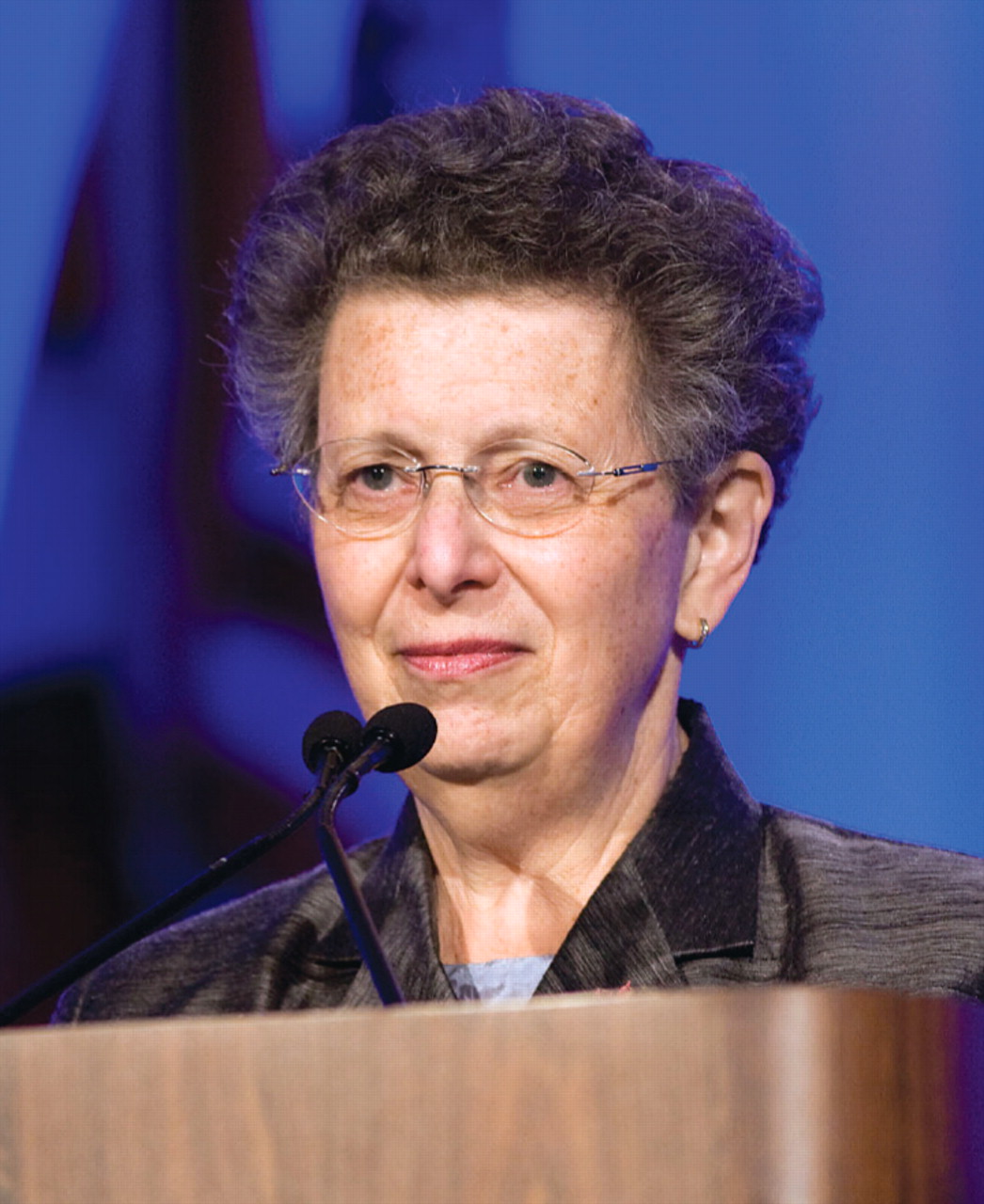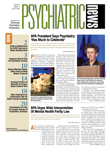Psychiatry and APA are preparing for changing times—health system reform, new expectations around conflicts of interest, the use of health information technology, comparative-effectiveness research, and the challenge of operating under new fiscal constraints.
In her address at the Opening Session of APA's 2009 annual meeting in San Francisco, outgoing APA President Nada Stotland, M.D., recounted APA's achievements in the past year, ranging from addressing relationships between the Association and the pharmaceutical industry to reorganization of the component structure to make APA a more streamlined and nimble organization.
And she asserted that in the teeth of stigma and opposition from various quarters, psychiatry has much to celebrate.
“Our skills are unique and precious—medical and psychological knowledge, communication and compassion—all in the service of healing some of the most devastating diseases that afflict humankind,” she said.“ We are brain doctors and doctors of emotion and cognition. We chose to pursue medical and mental health training. We dissected cadavers. We attended operations, births, and deaths. We spent long nights at the bedside. When we could not save our patients, we comforted their families....
“Psychiatry is the medical discipline that encompasses the body and the soul,” Stotland continued. “We understand our patients' physiology, and we share our patients' burdens of guilt, grief, and anxiety. We help our patients call on those sources of strength and meaning that not only alleviate psychiatric symptoms, but make life worth living.”
Stotland said that enemies of psychiatry, including the Church of Scientology, have distorted the image of the profession, and she noted that“ no other medical specialty has an entire organization dedicated to its destruction.”
She cited several individual psychiatrists by name whose exemplary work represents the “real psychiatry and the real APA.”
These included Surinder Nand, M.D., who founded a treatment center in Chicago for Asian women immigrants who have experienced domestic violence; Anna Holmgren, M.D., who left her home to provide psychiatric care to victims of Hurricane Katrina in New Orleans; Carl Bell, M.D., who has worked on violence prevention in Chicago; Francine Cournos, M.D., who has done much to help the homeless in New York City; Marshall Forstein, M.D., who has provided psychiatric care to AIDS patients; Arshad Husain, M.D., who has worked extensively with victims of the trauma of war; Jeffrey Akaka, M.D., who has fought the psychologist prescribing wars in Hawaii; and Jack Drescher, M.D., who has worked to educate reporters and the public about sexual orientation.
Stotland also used the occasion to assert that psychiatry has a voice in addressing social problems.
“We can do more to improve the health of disadvantaged populations by providing safe communities, good jobs, and education than by treating the people who get sick because they are uneducated, unprotected, and unemployed,” she said. “We have an obligation to use our expertise and our position in society to create social conditions that promote health.
“That is why we support the rights of people who are gay to marry and raise children. That is why we take the position that each woman is the best judge of whether to have an abortion or a baby. That is why we oppose participation in the interrogation of detainees.
“And that is why I told a reporter from Parade magazine that putting children in the adult penal system is just plain wrong,” she said.
Meanwhile, political and economic changes present challenges for American medicine and psychiatry. She reiterated the efforts APA has made to respond to concerns about conflict of interest, such as beginning a process to eliminate industry-supported symposia at APA meetings.
“We are equally scrupulous as we develop the DSM-V,” she added. “We demanded an unprecedented level of disclosure and divestiture from the broad array of clinicians, researchers, and epidemiologists working on DSM-V.... I don't know what DSM-V is going to look like, but I do know that we have spared no expense, time, or trouble to make it the best possible tool for both clinicians and scientists. After the debates, after the decisions, we will need to come together and make peace with DSM-V.
“Don't let our enemies use doubts about the DSM as a weapon to undermine our profession,” she added.
But the most pressing challenge—and the greatest uncertainty—lies in the need to reform the nation's health care system.
“The failure of the richest country in the world to provide medical care to everyone is wrong,” Stotland said. “Job loss, foreclosures, dislocation, and precipitous declines in the values of investments have magnified existing health care problems and disparities. The high costs of our fragmented system are sapping the strength of our businesses.”
Stotland made it a goal at the beginning of her presidential year to sponsor several venues for educating members about options for health system reform, such as a “debate” that was held at last year's Institute on Psychiatric Services between proponents of a single-payer system and those supporting the AMA's proposal of market-based reforms and tax credits.
“Most of you want a single-payer system—but not all of you,” she said. “Shall we stay out of the fray for fear of offending our minority or speak up on behalf of our majority? Let your leadership know what you think.”
She vowed that APA will be part of a debate that will ultimately lead to a better, more efficient, and equitable health care system.
“We will replace the fragmented and wasteful system that wastes our time and money, lands our patients in jails or on the streets, and lets them die 25 years earlier than they should, with one-stop, coordinated, consistent, health care by a team that includes us and pays us fairly and promptly,” she declared. ▪


